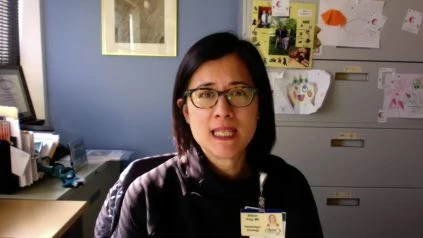Allison King, MD of Washington University School of Medicine @WUSTLmed discusses the study on gender disparities in hematology research success.
______________
Hematologists who complete a mentored training program report higher academic performance rates than those who do not; however, a study published today in Blood Advances indicates a small difference between male and female hematologists in the success rate. The report, which explored the effect of caregiving obligations on academic performance, found that men had on average one more first- or senior-authored publication than women, and nearly twice as many total publications. Interestingly, the study found that self-identification as a carer was correlated with reduced productivity for men but not for women.
The Clinical Research Training Institute (CRTI) of the American Society of Hematology (ASH) seeks to improve medical preparation for hematologists and to increase their academic performance. Each year, twenty participants – usually fellows or faculty members with a hematology career in mind – are chosen to take part in the year-long education and mentoring programme. The CRTI starts with a week-long workshop which consists of lectures, group discussions and interactive sessions. During the year participants collaborate with the support of faculty and peers to create individual clinical research projects.
Previous CRTI evaluations have shown that the system has improved academic achievement for all students. However, the female participants displayed significantly less performance indicators than their male counterparts. Researchers in this study speculated that caring for a child or elderly parent may lead to this difference, so from 2003 to 2016 they asked CRTI alumni to complete surveys on their caregiving responsibilities. Respondents also submitted CVs, which were evaluated by researchers for the number of first- or senior-author publications, the total number of publications, the percentage of research effort, and the number of instances of becoming a lead federal grant investigator.

